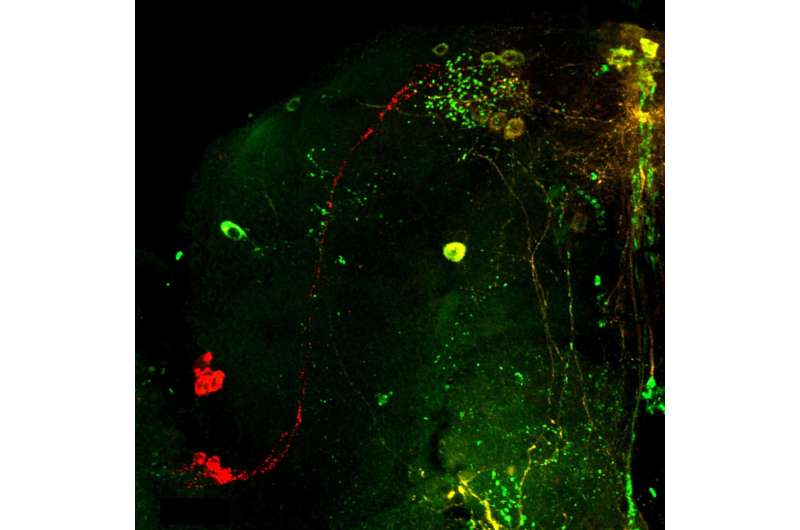December 23, 2022 report
Male fruit flies found to transfer chemical to females to induce sleep, so they won't mate with other males

A team of researchers from Bariloche Atomic Center and Fundación Instituto Leloir—IIBBA—CONICET, both in Argentina, has found that male fruit flies inject females with a chemical while mating that makes them sleep after sex so that they will not mate with other males.
In their paper published in the open access journal PLOS Genetics, the group describes how they studied reproduction of fruit flies in their lab using webcams.
Prior research has shown that during copulation, male fruit flies eject a peptide into the females' body along with a batch of sperm. Doing so has been shown to make the female less attractive to other males. Previous research has also shown that fruit flies in the wild wake up from a sleep state an hour or two before the sun comes up. In this new effort, the researchers looked to see if there was more to the story, from the male flies' perspective.
To find out, the researchers raised a group of fruit flies in their lab and then added webcams that allowed them to monitor the activity among the flies for four days at a time.
From the video evidence, the researchers found that the only females that woke up and began to fly around in the morning, after the lights were turned on, were virgins. Suspecting that the peptide injected into the female during sex was behind the sleepiness, the researchers repeated the experiment after first turning off the neurons in several of the females that responded to the peptide before freeing them to copulate.
The suspicions of the researchers were confirmed when the females with disabled neurons woke just before the lights came on along with the virgins. The researchers suggest this indicates that in addition to impacting how a female smells to other potential mates, the peptide also travels to the brain and interacts with the parts of the brain involved in sleep. They conclude by suggesting that the behavior of the males is a tactic that has evolved over time to help them ensure they are successful in producing offspring.
More information: Sabrina Riva et al, Mating disrupts morning anticipation in Drosophila melanogaster females, PLOS Genetics (2022). DOI: 10.1371/journal.pgen.1010258
Journal information: PLoS Genetics
© 2022 Science X Network





















